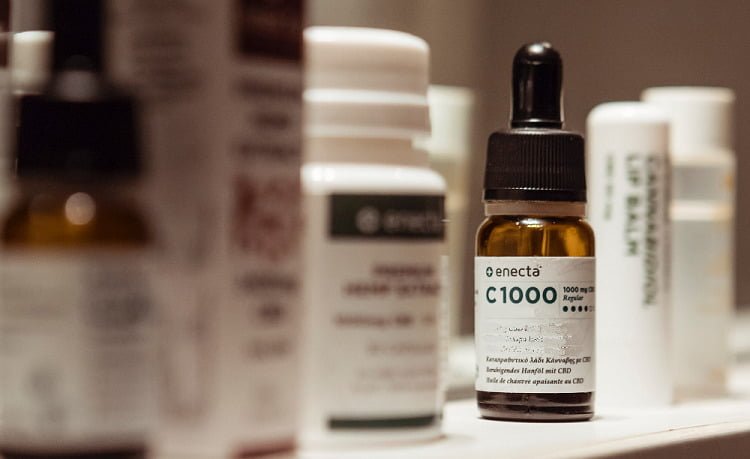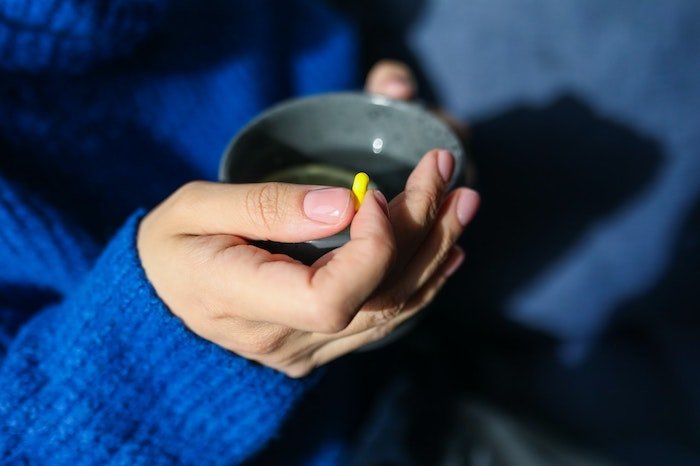Alcohol use disorder is an umbrella term that encompasses ‘alcoholism’, alcohol dependency and alcohol addiction, and these will require different levels of detox.
A medically-overseen alcohol detox is a treatment you’ll need if you have a moderate to severe alcohol dependency.
Alcohol dependency requires a medicated alcohol detox because the body becomes physically dependent on alcohol.
It can be dangerous to withdraw from alcohol without a prescribed alcohol detox because heavy drinking consistently changes your brain function.
There are many ways to ensure you get the appropriate medical care for your addiction.
Speak to your GP or an addiction healthcare professional to find an alcohol detox process that’s suited to your own needs.
UK Alcohol Stats

Alcohol has been proven to be the most harmful substance in the UK, with the detrimental effects of this legal drug spilling over from the individual into society as a whole. [1]
It is estimated that alcohol costs the NHS around £3.5 billion each year, and this figure does not take into account the physical, mental and emotional costs of this substance.
Many people choose to consume alcohol for recreational and social purposes, and it is possible to do this without developing an addiction. However, alcohol dependency is a very real condition that can have life-threatening consequences.
Once you have accepted that you have a problem with alcohol, the first practical step towards recovery is to undergo detoxification.
Detoxification is an essential part of the recovery process, referring to the process of cleansing the body of all traces of alcohol in order to progress to the psychological stage of treatment with a clear mind.
How Does Alcohol Change Brain Function?

Drinking a lot causes the brain to compensate by changing the chemicals produced. This helps the brain to stay balanced.
However, when you stop drinking alcohol all of a sudden, this balance is thrown off, which can lead to problems with your central nervous responses.
Medicine can help to acclimatise your brain to a life without alcohol.
What is ‘Heavy Drinking’?
Heavy drinking includes binge drinking and has been defined as:
- Women – 4 or more drinks on any day or 8 or more per week
- Men – 5 or more drinks on any day or 15 or more per week
Where can I go to detox from alcohol?

Alcohol detoxification can take place at various locations depending on factors such as the length and severity of the addiction, lifestyle constraints, budget, and medical history.
It is always recommended to undergo alcohol detoxification under the care of medical professionals at a local private rehabilitation centre or NHS hospital.
It is important to ensure that the chosen practice is regulated as a Care Quality Commission or Care Inspectorate facility as these are carefully monitored to guarantee high-quality care.
Can I do my alcohol detox at home?
If the alcohol addiction is less severe, it is possible to go through detoxification in the comfort of your own home. However, certain specifications must be met and medical advice must be consulted before undergoing a home detox.
Alcohol detox in my area

Here at OK Rehab, we can guide you in selecting a treatment programme that suits your lifestyle and individual needs.
If you are looking for a local treatment facility in which to undergo alcohol detoxification, the following links may be helpful in your search:
- Alcohol Detox in London
- Alcohol Detox in Kent
- Alcohol Detox in Birmingham
- Alcohol Detox in Oxfordshire
- Alcohol Detox in Suffolk
- Alcohol Detox in Essex
- Alcohol Detox in Gloucestershire
- Alcohol Detox in Surrey
- Alcohol Detox in Berkshire
- Alcohol Detox in Cambridgeshire
- Alcohol Detox in Manchester
- Alcohol Detox in Bristol
- Alcohol Detox in Lancashire
- Alcohol Detox in Hertfordshire
Note: The above is not an exhaustive list. Click here to view the full list of locations that we serve in the UK and beyond.
How is alcohol withdrawal diagnosed?

When a patient presents with suspected alcohol withdrawal, a doctor must investigate the severity of the symptoms in order to provide effective and adequate care.
They will usually begin by running toxicology reports to measure the amount of alcohol in the bloodstream, as well as various tests to check for dehydration and the level of general health.
It is important to remember that any diagnosis should be performed by a medical professional – it is not recommended to self-diagnose in the case of alcohol withdrawal, as there are varying levels that can affect the type of medical treatment required.
The Clinical Institute Withdrawal Assessment for Alcohol is often used by medical professionals to determine the severity of withdrawal symptoms, allowing for a safe and effective treatment plan to be put in place.
This involves a series of questions that the patient must answer as accurately and honestly as possible including details of headaches, tremors, hallucinations, levels of perspiration, and feelings of anxiety.
Once complete the patient will receive a score of between 0 and 67, with any scores under 10 not typically requiring medication and anything over 20 indicating severe withdrawal symptoms with a high likelihood of delirium tremens occurring. [2]
What are the symptoms of alcohol withdrawal?

Alcohol withdrawal can be extremely dangerous, as there is no guaranteed way to predict how severe the symptoms may be. Generally, the length of the addiction and the amount of alcohol consumed can help to provide some guidance but this method of prediction is not always accurate.
Below are some examples of mild, moderate, and severe alcohol withdrawal symptoms:
Mild symptoms of alcohol withdrawal
- Nausea
- Itching
- Slight headaches
- Feeling damp and clammy
- Mild involuntary tremors
- A lower tolerance to sound and light
Moderate symptoms of alcohol withdrawal

- Feeling restless and anxious
- Increased perspiration
- Persistent nausea and retching
- Pins and needles
- Noticeable tremors when arms are outstretched
- Slight mental confusion
Severe symptoms of alcohol withdrawal
In some cases, mild or moderate symptoms can quickly progress into severe and even life-threatening illnesses including seizure, violent tremors or dehydration.
These symptoms are called delirium tremens and medical assistance must be immediately sought if any of the following are present:
- Seeming or feeling agitated
- Hallucinations: seeing, hearing or feeling things that aren’t there
- Intense perspiration
- Seizures
- Constant nausea and/or vomiting
- Coarse tremors: involuntary shaking that is clearly noticeable
What kind of medication is available for alcohol detox?

- Diazepam
- Chlordiazepoxide
- Lorazepam
What is Librium?
Librium is another name for Chlordiazepoxide – a sedative and hypnotic benzodiazepine. As well as drug and alcohol withdrawal, it is used to treat anxiety and insomnia.
What are the symptoms of alcohol withdrawal?
As mentioned above, alcohol withdrawal can quickly progress from a handful of uncomfortable side effects into a life-threatening situation. Many people who undergo alcohol detoxification will not experience any adverse effects aside from the most common withdrawal symptoms.
Others, particularly those that suffer from co-occurring conditions or severe alcohol addiction, may experience one or more of the conditions listed below.
1. Delirium tremens
Delirium tremens is the most dangerous side effect of alcohol withdrawal and often presents as extreme confusion before progressing into hallucinations and seizures.
This condition can get worse very quickly which is why 24/7 monitoring is recommended for patients undergoing alcohol withdrawal.
2. Seizures
While seizures are a symptom of delirium tremens, they may also occur independently due to the varying fluctuations of chemicals in the brain. Repeated seizures can result in brain damage and memory loss in severe cases, so extreme care must be taken. [3]
3. Hypophosphatemia
Hypophosphatemia is a disorder that occurs when there are dangerously low levels of phosphate in the blood.
Many people who struggle with an alcohol addiction may be malnourished and in generally poor health, and will therefore be more prone to this potentially dangerous condition.
4. Alcoholic ketoacidosis
If an individual regularly consumes large quantities of alcohol, they may become malnourished due to repeated vomiting and a poor diet. As a result, the body may produce too much insulin which can lead to alcoholic ketoacidosis.
This condition can be life-threatening and immediate medical attention must be sought.
How to detox from alcohol safely
The safest and most effective form of detoxification treatment is to slowly taper off the frequency and dosage of alcohol consumption over a period of time.
This allows the body to adjust to the fluctuating levels of chemicals and may help to alleviate many of the more unpleasant withdrawal symptoms.
While mild to moderate alcohol withdrawal can usually be completed as an outpatient and require regular appointments and check-ins, severe withdrawal must be completed under the care of trained medical professionals within a rehabilitation centre.
This is due to the increased risk of conditions such as delirium tremens and alcoholic ketoacidosis, both of which can be life-threatening if not treated in a timely manner.
What to expect from an alcohol detox

A person holding medication and tea during alcohol detox
There is no ‘correct’ way to experience an alcohol detox and no strict timeline that each individual’s recovery is guaranteed to follow.
The withdrawal symptoms that present during detoxification will vary in severity depending on the length of the addiction and the amount of alcohol consumed on a regular basis. In general, most withdrawal symptoms will abate after one week, with some persisting for up to one year in certain cases.
It is vital that anyone undergoing alcohol detoxification is closely monitored throughout the first week of the process, particularly if they are recovering from severe alcohol addiction.
Some withdrawal symptoms such as seizures can be life-threatening and immediate medical assistance is required in these cases.
What happens in the first few days of alcohol detox?

Day 1 of alcohol detox
Alcohol withdrawal symptoms can begin as early as two hours after your last drink. They will likely continue and worsen throughout the day and may include headaches, tremors, anxiety, nausea, and potential seizures.
It’s recommended that you rest and allow your body to recover during this time. Drinking adequate amounts of water and consuming healthy, nutritious meals will give you the energy to continue the detoxification process.
Day 2 of alcohol detox

The symptoms will continue and may potentially become more uncomfortable. As your body is attempting to correct a chemical imbalance the symptoms may include panic attacks, hallucinations, and severe cravings for alcohol.
Days 3-7 of alcohol detox
Withdrawal symptoms will likely persist throughout the week but should begin to abate after a few days. However this is the most dangerous phase of treatment as signs of delirium tremens can suddenly occur without warning, so extreme case must be taken during this time.
What happens after the first week of alcohol detox?

One month after alcohol detox
The initial detoxification phase is now complete and most withdrawal symptoms have abated, although some such as anxiety and alcohol cravings can remain on and off for a few months and up to one year.
The chances of experiencing delirium tremens and other severe withdrawal symptoms may remain for up to 10 days, so 24/7 monitoring may still be required.
How do I know how long I need medication for alcohol detox?
A healthcare professional will be able to assess if and how long you need to take medication, as this can vary between different people.
When will my cravings top after completing alcohol detox?
Addiction is a lifelong illness with no cure, but with proper treatment, you can reach recovery and remain sober forever.
What Else Can I Do To Recover From Alcohol Addiction?

References
[1] https://www.thelancet.com/journals/lancet/article/PIIS0140-6736(10)61462-6/fulltext









